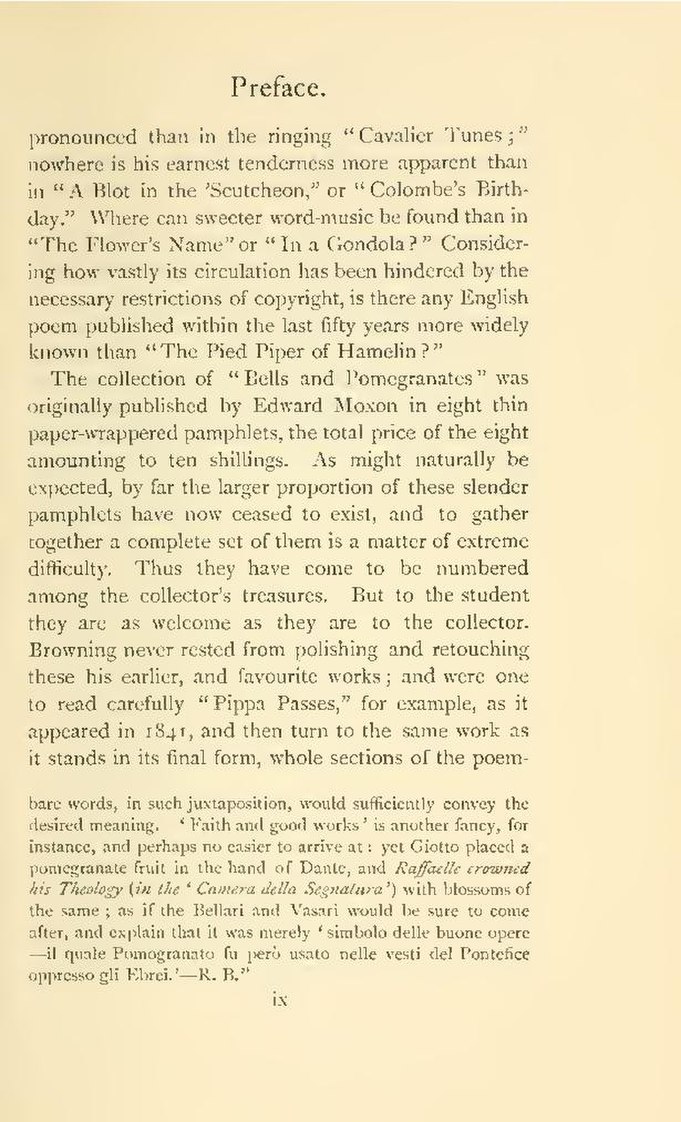Preface.
pronounced than in the ringing "Cavalier Tunes;" nowhere is his earnest tenderness more apparent than in "A Blot in the 'Scutcheon," or "Colombe's Birthday." Where can sweeter word-music be found than in "The Flower's Name" or "In a Gondola?" Considering how vastly its circulation has been hindered by the necessary restrictions of copyright, is there any English poem published within the last fifty years more widely known than "The Pied Piper of Hamelin?"
The collection of "Bells and Pomegranates" was originally published by Edward Moxon in eight thin paper-wrappered pamphlets, the total price of the eight amounting to ten shillings. As might naturally be expected, by far the larger proportion of these slender pamphlets have now ceased to exist, and to gather together a complete set of them is a matter of extreme difficulty. Thus they have come to be numbered among the collector's treasures. But to the student they are as welcome as they are to the collector. Browning never rested from polishing and retouching these his earlier, and favourite works; and were one to read carefully "Pippa Passes," for example, as it appeared in 1841, and then turn to the same work as it stands in its final form, whole sections of the poem
bare words, in such juxtaposition, would sufficiently convey the desired meaning. 'Faith and good works' is another fancy, for instance, and perhaps no easier to arrive at: yet Giotto placed pomegranate fruit in the hand of Dante, and Raffaelle crowned his Theology (in the 'Camera della Segnatura') with blossoms of the same; as if the Bellari and Vasari would be sure to come after, and explain that it was merely 'simbolo delle buone opere—il quale Pomogranato fu però usato nelle vesti del Pontefice oppresso gli Ebrei.'—R. B."
ix
